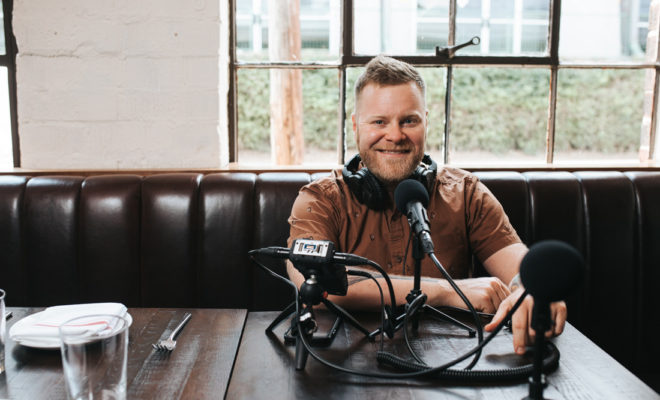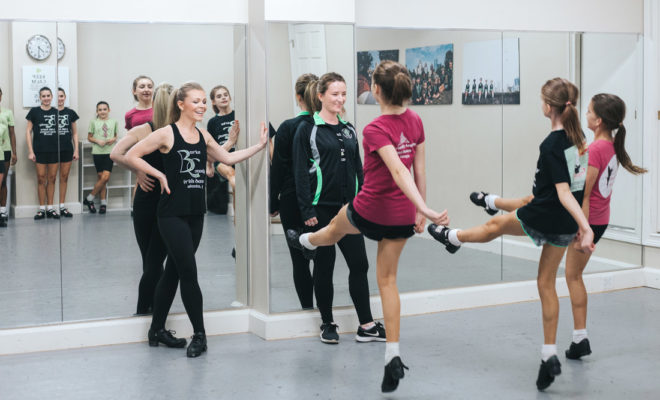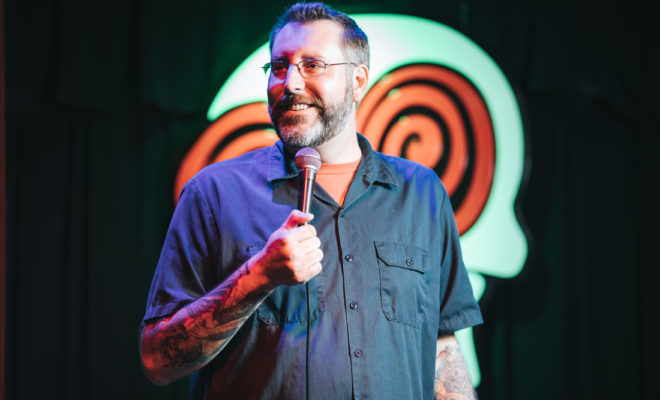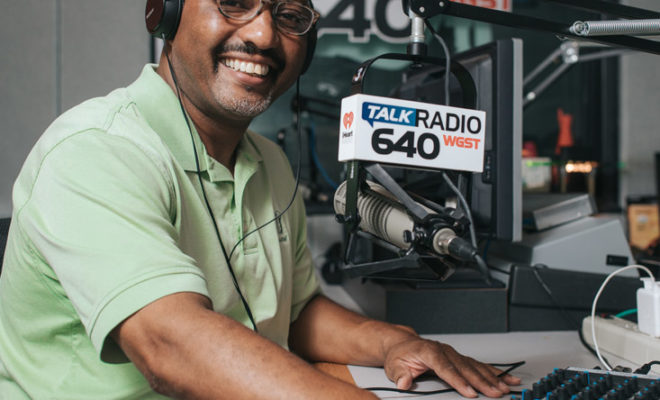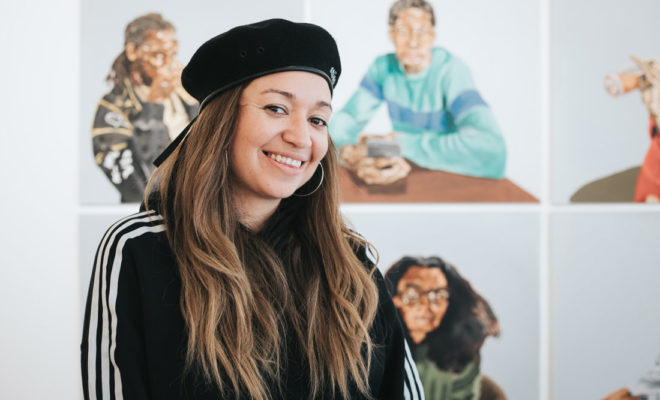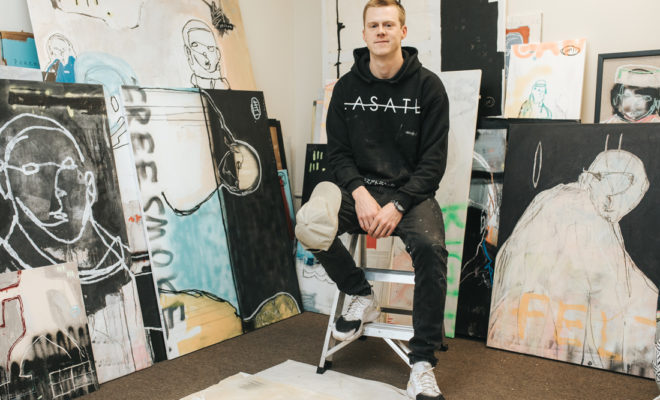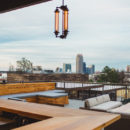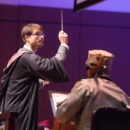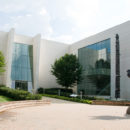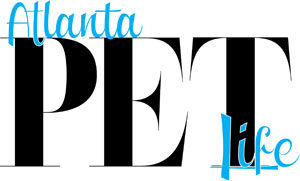Portrait Of Pride
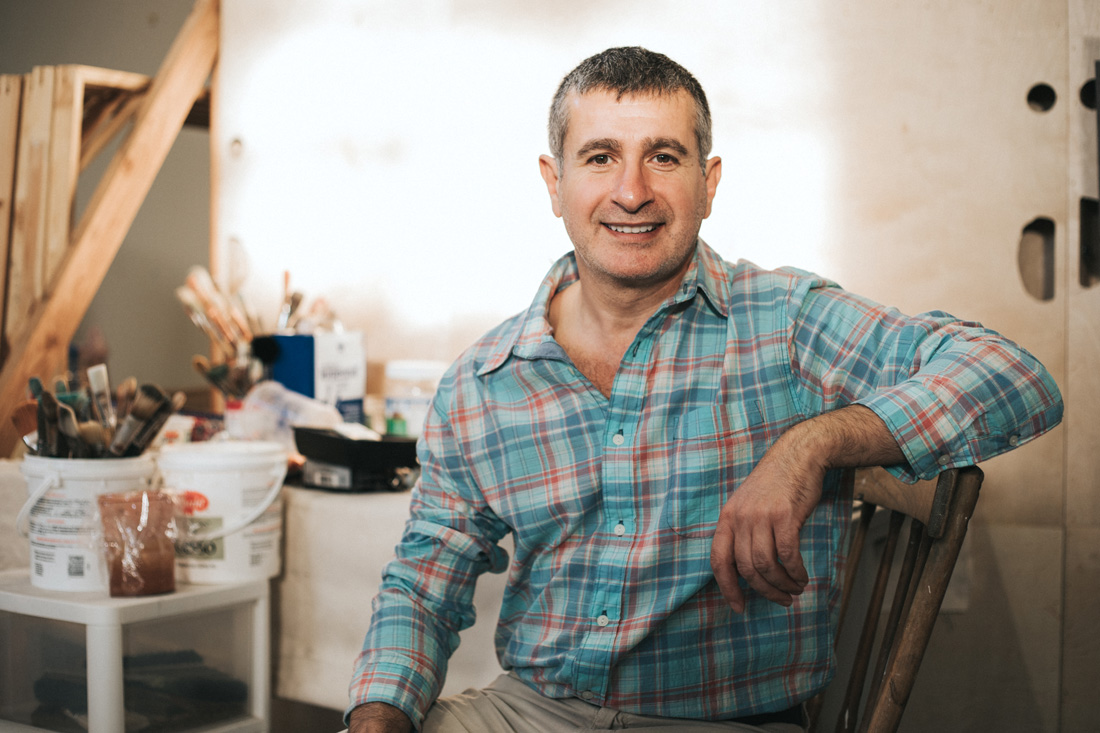
Nabil Mousa, an artist working on Midtown’s Westside, broadens the conversation on being gay as a Syrian American
It took Nabil Mousa years to feel comfortable identifying himself as an artist. In the back of his mind, the voice of Imposter’s Syndrome whispered cruel words of self-doubt. By no coincidence, he overcame these insecurities in tandem with coming out as a gay man—a decision, he says, that was made much easier with the support of Atlanta’s LGBTQ+ community.
“I was this scared, closeted gay man when I came to Atlanta. The gay community here helped me embrace who I am as a person and to shine through it, and I’m grateful for that,” Mousa says. “I don’t think I could have freely expressed my art if I hadn’t been able to become who I am as a gay man.” Being open about his sexuality was particularly daunting for Mousa, an Arab American who emigrated from Syria with his family in 1978 when he was 12. But within a new, supportive community, he not only discovered true self-love, he found romantic love. Now he and his husband Scott share a beautiful home life together in the Westside.
This dual expression, his identity as a gay man and a Syrian American, has become a fundamental aspect of his work, and it’s merited significant attention. A book about his work and life, Nabil Mousa: Breaking the Chains, was published in June 2017. His “American Landscape” series is currently on exhibit at the Arab American National Museum in Dearborn, Michigan, where it will remain through April 8.
“It talks specifically about the gay issues, me as a gay man, my struggles, my experience,” he says. “[The Arab American National Museum is] really embracing the LGBTQ+ issues as [they relate] to the Arab American community, and that is so wonderful to see because the Arab community will not talk about the gay issues; they refuse to bring them up.” But Mousa is proud and grateful for the opportunity to open the conversation around those issues.
“It has become a mission for me, because I feel what I have gone through in my life, all the difficulties, really even thinking about committing suicide so that my family wouldn’t know that I’m gay—if I can take that experience and empower other people to come out and embrace who they are, I feel like I’m doing my job. If I could just save one life, it’s worth all the art I’ve created.”
All of Mousa’s art is mission driven, though the purpose isn’t limited to promoting gay rights; he’s also interested in advocating for refugees. As the arts and culture chair for the Atlanta Pride Festival last year, he incorporated refugees from Clarkston, a town just outside Atlanta with the nation’s highest per capita population of refugees. He included them in the parade, carrying signs to promote awareness of their presence, and coordinated arts programing at the Clarkston Community Center.
His hope is that in 2018 he’ll travel back to Syria for the first time since 1999 to work with refugees. “I want to go to the refugee camps and work directly with the people, using art to bring some sort of dialogue, to get them to open up and talk, hopefully to bring hope and just show them that they’re not forgotten,” he says. The sale of his paintings this year will fund his return to the Middle East.
Today, Mousa’s abstract figures hung on the walls of Atlanta’s Gallery 874 speak of an artist who is self-actualized. Vibrant colors and uninhibited forms make no allusion to insecurities. The series on display is titled “Transcendence,” and it can be applied to more than the artwork: It describes Mousa’s essence. “As an artist, I always want to be reminded to be humble and to remember the reasons why I do my art,” he says. “And it’s to make a difference.”
STORY: Jodi Cash
PHOTO: Stephen Payne

